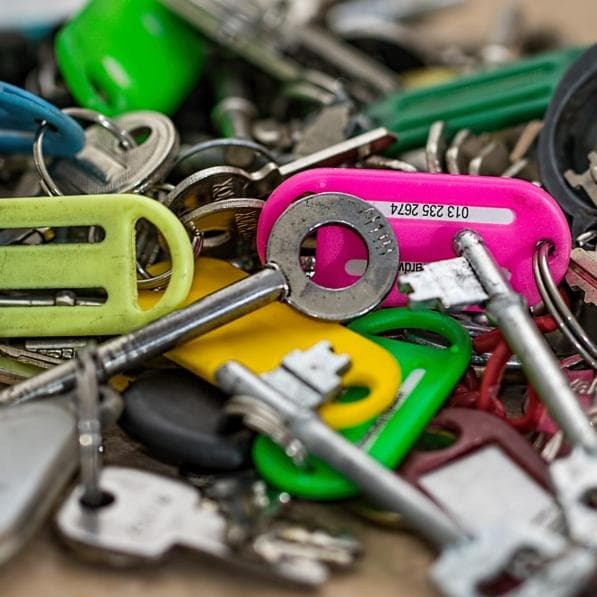Corporate Event Planning Checklist

- Determine the purpose of your event. The purpose is very important, as it determines the kind of activities you can organize for your event.
- If using a theme, make sure that it coincides with the values of your organization. Avoid cliches that will not attract guests or media coverage.
- If you need to hold the event outside of your business space, start looking early. A strong purpose statement will help you determine the kind of space you will need.
- Appoint an official general manager for the event. Whether it is yourself or someone else, a clear chain of command has to be set.
- After appointing the general manager, start building committees for the different aspects of the event. Breaking down the planning for big events is usually a good idea.
- Get estimates from your usual or potential providers. The budget committee will need these to build their financial projections.
- If your event has an artistic component, request quotes from well-known artists or have auditions early in the planning.
- If you will solicit sponsorships, work on the sponsorship resume right away. Potential sponsors will want to know the different sponsorship levels quite early, and it will also help with budgeting.
- While waiting for quotes and sponsors, build a preliminary budget. It can be modified throughout the planning stages.
- Check if you need any kind of permit or license around your event, especially if you plan on serving alcohol.
- If you will charge an admission price, determine the amount with the budget committee.
- Finalize the date within the first three months of planning. This will help with coordinating artists, suppliers and other elements of your event without the risk of conflicts.
- Meet with a graphic designer (in-house or consultant) and start drafting the different printed documents you will require for your event.
- Hire a printer for invitations, reminders and sponsorship requests.
- Meet with your relationist and build a preliminary timeline for publicity and media relations.
- If you need any pre-event and publicity photos taken, hire a photographer and take these as soon as you can.
- Organize regular committee meetings and have them provide weekly reports to the general manager.
- Start mailing sponsorship and donation request to potential sponsors and donors.
- Request company logos from confirmed sponsors to go on the next printed documents.
- Have your graphic designer confirm the templates for all future printed documents.
- After finalizing the designs with your graphic designer, send your next printing orders to the printer.
- If your event will use tickets, have them printed at this time also, and make them available for distribution.
- Build a final guest list, and mail invitations and other documentation to them.
- After confirming with your entertainers, sign a contract with them.
- Send out people throughout your city to look for potential locations for posters. Have them report on space availability.
- Meet with your relationist and make appointments for interviews and other media coverage.
- After choosing a caterer and signing a contract with them, choose the menu with them. Provide choices for different dietary requirements.
- At this time, you should request the different permits and licenses you will need.
- Do not forget to get liability insurance for your event; sometimes organization insurance does not cover these kinds of events.
- Check the ticket sales. Follow up with invited guests who have not yet responded.
- Reserve your publicity with radio and television stations as well as with printed media.
- If you require extra staff for the event, start advertising the positions now or go to an employment agency for help.
- Draw room diagrams and plan the seating, or whatever combination of space and tables you have.
- By this time, you should have a good idea of how many guests will come; you should provide this number to your caterer so he can plan accordingly. Request a final quote from your caterer and sign a contract.
- If your event involves a sequence of presentations or entertainment, write down the timeline. Give the scripts to the participants, request comments and work through potential problems.
- Hire a security agency to estimate your security needs.
- Meet with your committees one last time. Solve last-minute problems.
- Confirm final guestlist and attendance numbers.
- Organize preliminary staff meeting to explain tasks and confirm availability. Hire new staff right away if necessary.
- Send final timeline to the participants.
- Confirm your final order with your caterer.
- Meet with journalists or media stations to finalize media coverage details.
- Plan rehearsals as needed throughout the week.
- Have accounting write any cheques that need to be handed out on the day of the event.
- Choose your attire for the event, and have a change of clothes ready, just in case.
- Confirm delivery times with all your providers, and verify any previously delivered items.
- Get to the event space early and supervise deliveries.
- Make an inventory of all supplies and make sure you have everything you need.
- Put your staff in position and confirm their tasks.
- Check with your technicians for any potential problems with the technical setup.
- Hold a final rehearsal a few hours before the event, and check the sound and lighting at the same time.
- You've planned well and everything will work perfectly.
- Remember to pay any outstanding invoices.
- Request final reports from the committees, as well as a final budget.
Does your business or charitable organization need an event planned? This checklist was built to help the manager of a publicity event, a fundraiser or any other kind of organizational event to plan it successfully. This is a big responsibility for a single person, and this checklist is easily customizable if your divide the planning between committees. This checklist will help you with all the steps necessary for the creation of a successful event, and we do hope that you will print it and share it with the other persons involved in its planning.
Tips
Start thinking about your event 6 months in advance; some might even take a year to prepare. We strongly suggest that you start as early as possible; poor planning and last-minute decisions will most likely lead to a hasty, ill-conceived event that will not bring a positive image to your organization. The planning has a very strong grassroots element: you should spend a bit of time reflecting on the goals of the event and its relationship to the goals of your organization. Brainstorming sessions are good for this step. Your organization might have had previous experience with planning events; if this is the case, then you are at an advantage. You should revisit the previous event and check the organization, the suppliers and the post-event reports to build on good planning and avoid previous mistakes. If your organization already has a good business relationship with providers, it is strongly suggested that you go to them again because you are likely to get good quotes for a major event. If you are not so fortunate, thoroughly research the providers beforehand. There are many websites that provide business reviews to help you with this step. Don't forget to compare quotes between a few suppliers; sometimes a new supplier who wants to build a client base will give you better prices than well-established ones. Think about hiring a public relations professional will be especially useful if your event requires media coverage, unless your organization already has one on its staff.
Related Checklist


Plan a Class Reunion
Jefferey Rondman


Event
Jake R Brady
Related Checklist Templates


Fashion Show
Fae Fisher


Funeral Planning
Nicole Nichols-West


Family Reunion
Campbell Rodriguez


Event Planning
Nicole Nichols-West
More Checklist Templates
"Corporate Event Planning Checklist" not suitable?
Search the World's largest free library of checklist templates